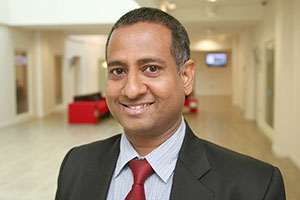27 March 2014
Essex-based UN expert criticises global rise in executions
University of Essex-based UN Special Rapporteur Professor Ahmed Shaheed has said no nation can justify the use of the death penalty in response to Amnesty International’s latest annual report on global capital punishment.
Published this week, the annual survey has shown that Iran and Iraq are largely responsible for a 15% increase in executions around the world. The report identifies 778 executions world-wide in 2013 - up from 682 in 2012 - with 538 of them in Iran and Iraq.

Professor Ahmed Shaheed, UN Special Rapporteur on the Human Rights Situation in Iran
Responding to the findings, Professor Shaheed of Essex’s Human Rights Centre, and School of Law, who holds the UN mandate for human rights in Iran, said: "The claim that the death penalty deters crime is not supported by empirical evidence even though the most frequently cited reason to impose the death penalty is its presumed deterrent effect. This myth needs to be exposed. Ignoring this myth not only contributes to increasing human rights violations but also sustains flawed and failed policies to deter crime. No government can argue that their duty to enforce the law and establish the rule of law is served by the enforcement of the death penalty.
“The Islamic Republic of Iran has the highest rate of executions per capita. The recorded executions have surged from 95 in 2004 to nearly 700 in 2013. Clearly, by the government’s own admission, a large number of these executions are illegal under international law, carried out for crimes that do not meet the most serious crime threshold set by international law. There have also been reported executions of juvenile offenders, again a violation of international law. Alleged deficits in due process rights further heightens the concern of the international community over the practice of the death penalty in Iran.
“Islam teaches that even one wrongful killing is tantamount to genocide; it is therefore inexplicable that, China aside, 80% of the executions worldwide in 2014 were carried out in Islamic countries."
Ends
More information
For further information please contact the University of Essex Communications Office, telephone: 01206 873529 or email: comms@essex.ac.uk.
...more news releases